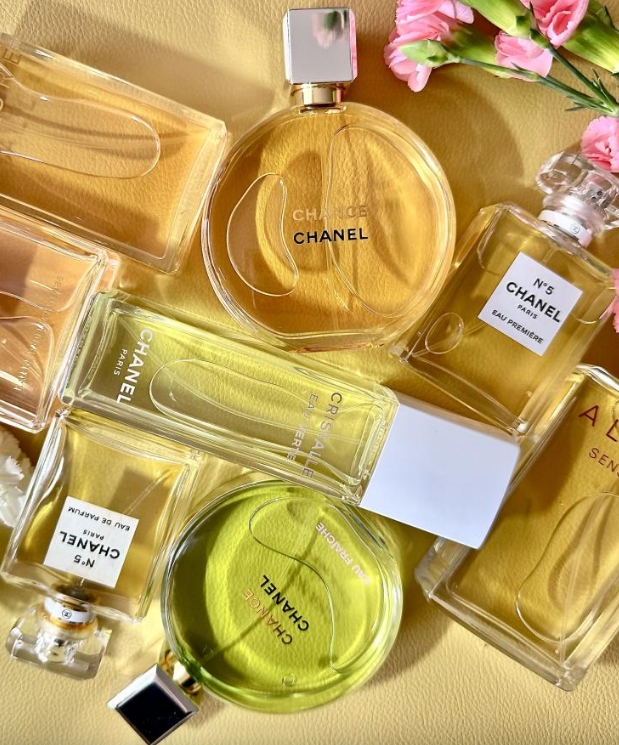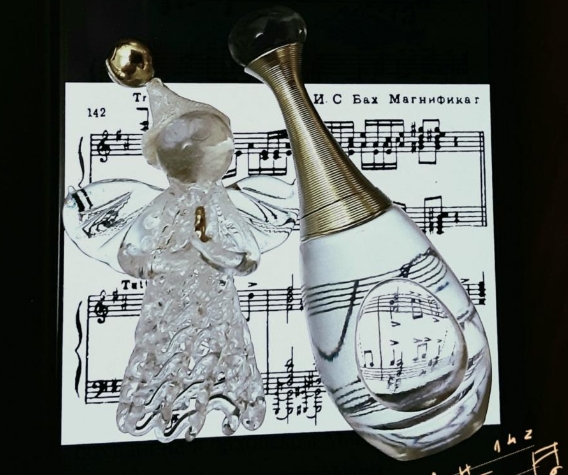What’s Better Parfum or Eau de Parfum? When it comes to selecting the perfect fragrance, the decision between parfum and eau de parfum is a common dilemma for many fragrance lovers. While both terms refer to types of perfumes, they are quite different in terms of concentration, longevity, and price. If you’re trying to determine which is the better choice for you, it’s essential to understand the differences between these two luxurious fragrance categories. In this article, we’ll dive deep into the characteristics of parfum vs eau de parfum, their key differences, and how to choose the right one for your personal preferences.
Whether you’re new to the world of perfumes or an experienced collector, understanding these nuances will help you make an informed decision. We’ll also explore some of the best fragrance alternatives and dupe perfumes to achieve the same high-end scent experience without the hefty price tag.

What is the Difference Between Parfum and Eau de Parfum?
When discussing parfum vs eau de parfum, the main factor that distinguishes the two is the concentration of fragrance oils. The concentration is directly related to the strength, longevity, and cost of the fragrance.
Parfum
Parfum (also known as extrait de parfum) has the highest concentration of fragrance oils—usually around 20% to 30%. This makes it the most intense and long-lasting of all fragrance types. Parfum typically lasts 6-8 hours and is ideal for special occasions or when you want a fragrance that will last all day or night.
Eau de Parfum
On the other hand, eau de parfum (EDP) has a slightly lower concentration of fragrance oils, usually around 15% to 20%. While it’s still considered a strong fragrance, it doesn’t last as long as parfum. Eau de parfum typically lasts 4-6 hours and is perfect for everyday use.
| Aspect | Parfum | Eau de Parfum |
|---|---|---|
| Fragrance Oil Concentration | 20-30% | 15-20% |
| Longevity | 6-8 hours | 4-6 hours |
| Usage | Special occasions, nightwear | Everyday wear, versatile |
| Cost | Higher (luxury pricing) | More affordable than parfum |
| Scent Strength | Strong, intense | Slightly lighter, but still powerful |
Why is Parfum More Expensive than Eau de Parfum?
The price difference between parfum and eau de parfum is often due to the higher concentration of fragrance oils in parfum. The extraction process for parfum is more intricate and uses a larger amount of essential oils, resulting in a more expensive product. Additionally, parfum tends to be produced in smaller quantities, which also drives up the cost.
How Does the Concentration of Fragrance Oils Affect Scent Longevity?
The concentration of fragrance oils is one of the key factors influencing how long a fragrance lasts. Parfum, with its higher concentration of oils, typically lasts longer—up to 8 hours or more, depending on the individual’s skin chemistry. Eau de parfum, with its lower concentration, may fade after 4-6 hours, making it a suitable option for those who prefer reapplying throughout the day.
Which One Should You Choose: Parfum or Eau de Parfum?
Choosing between parfum and eau de parfum depends on your personal preferences and lifestyle. If you prefer a stronger, longer-lasting fragrance, parfum might be the right choice for you. It’s ideal for special occasions or for those who don’t mind splurging on luxury scents.
However, if you’re looking for something that’s versatile enough for everyday wear, eau de parfum could be the better option. It offers a great balance of scent intensity and longevity while being more affordable. For those who prefer a more subtle yet captivating fragrance, eau de parfum is the perfect middle ground.
Parfum vs Eau de Parfum for Daily Use
While parfum may be a bit too intense for daily wear, eau de parfum is an excellent choice for those who want a fragrance that can carry them through the day without overwhelming the senses. It offers enough strength to make a statement, but it won’t linger for too long, which can be perfect for office settings or casual outings.

FAQ: Parfum vs Eau de Parfum
1. What is the difference between parfum and eau de parfum?
Parfum (also known as extrait de parfum) has the highest concentration of fragrance oils, typically between 20-30%. This makes it the strongest and most long-lasting option, usually lasting 6-8 hours. Eau de parfum (EDP) contains a lower concentration, generally between 15-20%, and lasts around 4-6 hours. The primary difference is the intensity and longevity of the scent.
2. Which is stronger, parfum or eau de parfum?
Parfum is stronger than eau de parfum because it has a higher concentration of fragrance oils. This gives it a more intense scent, and it tends to last much longer, making it perfect for special occasions when you need a fragrance that will hold up throughout the day or night.
3. How does the concentration of fragrance oils affect scent longevity?
The higher the concentration of fragrance oils, the longer the fragrance will last. Parfum has a higher concentration (20-30%) and can last for 6-8 hours, whereas eau de parfum, with a lower concentration (15-20%), typically lasts for 4-6 hours.
4. Why are some fragrances labeled as perfume while others are called cologne?
Cologne generally has a lower concentration of fragrance oils (2-4%) than parfum or eau de parfum, making it a lighter and less long-lasting fragrance. Perfume (or parfum) is stronger and more intense, suitable for special occasions, while cologne is used for daily wear with a fresher, lighter scent.
5. Can the terms parfum and eau de parfum be used interchangeably?
No, parfum and eau de parfum cannot be used interchangeably. Parfum refers to a more concentrated and long-lasting fragrance with a higher oil content, while eau de parfum is lighter and not as intense, making it ideal for everyday use.
6. What factors influence the price differences between various fragrances?
The price of a fragrance can be influenced by factors like the concentration of fragrance oils, the complexity of the scent, and the brand’s prestige. Parfum, being more concentrated and made from high-quality ingredients, tends to be more expensive than eau de parfum, which is more diluted and produced in larger quantities.
7. Does the choice between parfum and eau de parfum depend on the occasion?
Yes, the choice between parfum and eau de parfum often depends on the occasion. Parfum is more intense and longer-lasting, making it ideal for formal events, evening wear, or special occasions. Eau de parfum is perfect for daily use or less formal settings due to its lighter and more versatile fragrance profile.
8. How should parfum and eau de parfum be applied differently?
Because parfum is more concentrated, it should be applied sparingly, often to pulse points such as the wrists and behind the ears. Eau de parfum, being lighter, can be applied more liberally, and can even be sprayed on clothes or in the air for a more subtle effect. Both should be applied on clean, moisturized skin for the best longevity.
9. Are there regulations governing the labeling of parfum and eau de parfum?
Yes, there are regulations in many countries governing the labeling of parfum and eau de parfum. These regulations require that the fragrance’s concentration of oils be listed clearly, ensuring that consumers understand the strength and longevity of the product they are purchasing. The International Fragrance Association (IFRA) sets standards for fragrance ingredients and product labeling.
10. What role do synthetic ingredients play in parfum and eau de parfum?
Synthetic ingredients are commonly used in both parfum and eau de parfum to replicate natural scents and to create more consistent, long-lasting fragrances. These ingredients also make the perfumes more affordable and allow for the creation of complex scent profiles that may be difficult to achieve using only natural ingredients.
11. How can one determine the quality of a fragrance or perfume?
The quality of a fragrance can often be determined by its longevity, the richness of the scent, and how well the fragrance evolves over time. High-quality perfumes, such as parfum, tend to have more depth and complexity, with the scent lasting for hours. Cheaper options may have a lighter, more fleeting scent.
12. Do parfum and eau de parfum have the same fragrance notes?
Parfum and eau de parfum may share the same fragrance notes, but their intensity and longevity differ due to the concentration of oils. Parfum will have a more pronounced and deep scent, with the base notes being more noticeable. Eau de parfum often highlights the top and middle notes more prominently, with the base notes being less intense.
Best Dupe Perfumes for Parfum and Eau de Parfum
If you’re looking for an affordable alternative to luxury parfum or eau de parfum, IMIXX Perfumes offers an excellent range of dupe perfumes that replicate the essence of iconic fragrances. Using top-quality ingredients and traditional techniques, IMIXX ensures that their fragrance replicas provide a luxurious scent experience similar to high-end brands like Tom Ford, Chanel, Dior, and more.
Explore our collection of premium fragrance clones and inspired perfumes at IMIXX Perfumes to enjoy luxurious scents at an affordable price.

In conclusion
whether you choose parfum or eau de parfum depends on your personal preferences, lifestyle, and occasion. Parfum offers stronger and longer-lasting scents, while eau de parfum provides a more versatile option for daily use. If you prefer luxury scents but want to save on cost, IMIXX Perfumes has the perfect perfume alternatives for you.


 No.12 Inspired by Velvet Haze Perfume
No.12 Inspired by Velvet Haze Perfume